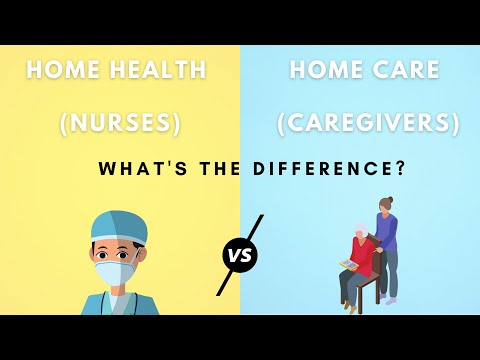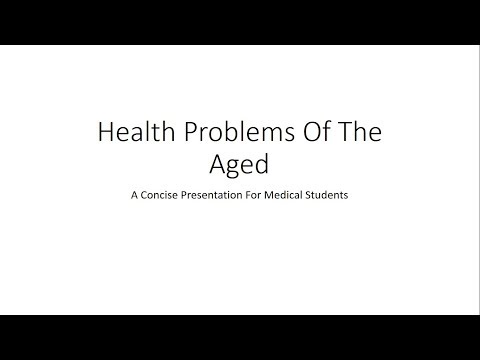Mental Health and the Elderly: A Social Work Perspective
Contents
- The Importance of mental health in the Elderly
- The Prevalence of Mental Health Issues in the Elderly
- The Impact of Mental Health Issues on the Elderly
- The Causes of Mental Health Issues in the Elderly
- The Treatment of Mental Health Issues in the Elderly
- The Prevention of Mental Health Issues in the Elderly
- The Role of Social Workers in Promoting Mental Health in the Elderly
- The Challenges of Promoting Mental Health in the Elderly
- The Future of Mental Health in the Elderly
- The Importance of Social Work in Promoting Mental Health in the Elderly
A social work perspective of mental health and the elderly.
Checkout this video:
The Importance of mental health in the Elderly
mental health is an important issue at all stages of life, but it is especially important in older adults. The elderly population is the fastest growing age group in the United States and as such, there is an increased need for mental health services.
There are a number of factors that can contribute to mental health problems in the elderly. Retirement, widowhood, and declining health can all lead to feelings of loneliness, isolation, and depression. In addition, the elderly are at increased risk for dementia and other cognitive decline.
Social workers play a vital role in providing mental health services to older adults. They can provide counseling and support to help individuals cope with difficult life transitions. They can also help connect individuals with community resources and support groups. In addition, social workers can advocate for public policy changes that will improve the mental health of older adults.
The Prevalence of Mental Health Issues in the Elderly
According to the National Alliance on Mental Illness, 1 in 6 U.S. adults live with a mental health condition. Of those adults, 20% are age 55 or older. Mental illness is not a normal part of aging, and most older adults who experience mental health issues live independently and successfully manage their symptoms.
Mental illness is common in the United States, but the topic of mental health is often taboo. The elderly population is particularly vulnerable to mental health issues due to retirement, social isolation, and physical health problems. However, the prevalence of mental health issues in the elderly is often underreported.
One reason for this underreporting is that many elders are reluctant to seek help for fear of being labeled as mentally ill or senile. Additionally, many elders do not have access to mental health services due to financial constraints or lack of transportation. As a result, many elders go without diagnosis and treatment for their mental health conditions.
untreated mental health conditions can lead to serious consequences, such as suicide, depression, anxiety, substance abuse, and social isolation. If you suspect that someone you know is struggling with a mental health issue, it’s important to reach out and offer support. There are many resources available to help older adults cope with mental illness, and treatment can make a profound difference in a person’s quality of life.
The Impact of Mental Health Issues on the Elderly
The elderly population is one of the most vulnerable groups in our society. They are more likely to suffer from chronic health conditions, social isolation, and poverty. This vulnerable population is also at a higher risk for mental health problems. Mental health issues can have a profound impact on the elderly, interfering with their ability to live independently and enjoy a good quality of life.
untreated mental health issues can lead to serious consequences for the elderly, such as depression, anxiety, isolation, and even suicide. In addition, mental health problems can worsen existing medical conditions and make it more difficult to manage chronic illnesses. Mental health issues can also make it difficult for the elderly to participate in activities that they enjoy, leading to a further decline in their quality of life.
social workers play a vital role in addressing the mental health needs of the elderly population. We are uniquely positioned to provide much-needed support and assistance to this vulnerable group. We can help connect them with resources and services that can improve their mental health and well-being. In addition, we can provide counseling and support that can help them cope with the challenges of aging.
The Causes of Mental Health Issues in the Elderly
There are many different causes of mental health issues in the elderly. Some of the more common ones include:
-Loneliness and isolation: As we age, we often lose touch with friends and family. This can lead to feelings of loneliness and isolation, which can trigger mental health problems.
-Bereavement: The death of a loved one can be very difficult to deal with, especially if it is someone close to us. This can lead to mental health issues such as depression and anxiety.
-Physical health problems: Physical health problems can also lead to mental health issues in the elderly. For example, someone who is dealing with a chronic illness may become depressed or anxious.
-Financial problems: Financial problems can be stressful at any age, but they can be especially difficult to deal with in retirement. This can lead to mental health issues such as anxiety and depression.
If you are an elderly person who is struggling with mental health issues, it is important to seek help from a qualified professional. Social workers are trained to assist people with all sorts of mental health issues, and they can help you get the treatment you need.
The Treatment of Mental Health Issues in the Elderly
Mental health issues are often viewed as a problem that only affects young people. However, mental health problems are common in the elderly population as well. The treatment of mental health issues in the elderly is a complex process that often requires the involvement of multiple agencies and professionals.
As the population of the United States ages, it is important to be aware of the mental health issues that can affect this population. Mental health problems can have a profound effect on an individual’s quality of life. In addition, mental health problems can lead to serious physical health problems. For example, depression is a risk factor for heart disease.
The treatment of mental health issues in the elderly is a complex process that often requires the involvement of multiple agencies and professionals. Mental health services for the elderly are typically provided by a variety of agencies, including social service agencies, mental health clinics, and nursing homes. Mental health services for the elderly are also provided by some primary care physicians.
The goals of treatment for mental health issues in the elderly are to improve quality of life and to prevent or delay the onset of physical illness. Treatment typically includes medication, psychotherapy, and social support. Medication is often used to treat depression, anxiety, and psychosis. Psychotherapy can be used to help an individual deal with stressful life events and to develop coping skills. Social support can be provided by family members, friends, or professional caregivers.
The Prevention of Mental Health Issues in the Elderly
It is estimated that one in five adults aged 60 and over experience some form of mental health problem, with anxiety and depression being the most common. In addition, the suicide rate among older adults is high, and rising. While mental health problems can occur at any age, they are more common in older adults for a variety of reasons. These include social isolation, bereavement, physical health problems, and retirement.
As a social worker, you play a key role in the prevention of mental health issues in older adults. There are a number of things you can do to help prevent mental health problems from developing or worsening in older adults. These include promoting social connectedness, providing support during transitions (such as retirement), and working to reduce stigma around mental illness.
The Role of Social Workers in Promoting Mental Health in the Elderly
As our population continues to age, mental health concerns among the elderly are likely to become more prevalent. Social workers play an important role in promoting mental health and well-being among older adults.
There are a number of factors that can contribute to mental health problems in the elderly. These include social isolation, widowhood, loss of income, declining physical health, and retirement. In addition, some older adults may experience cognitive decline or dementia.
Social workers can help older adults cope with these challenges in a number of ways. They can provide individual and family counseling, connect clients with community resources, and advocate for policy changes that will improve the lives of the elderly.
If you are concerned about an elderly loved one’s mental health, please reach out to a social worker for help.
The Challenges of Promoting Mental Health in the Elderly
The elderly population is the fastest growing age group in the United States. By 2030, it is estimated that over 20% of the US population will be over the age of 65 (US Census Bureau, 2010). mental health in later life has received increased attention in recent years due to several factors, such as the graying of America, increased longevity, and awareness of psychological issues in later life.
Mental health issues are of particular concern for social workers because of the high prevalence of mental health problems in the elderly population. Approximately 20% of adults aged 55 and over suffer from a mental health disorder (WHO, 2001). Depression is the most common mental health problem among the elderly, with a lifetime prevalence of 15-20% (Byerly, 2006). Anxiety disorders are also common, with a prevalence of 7-14% (Byerly, 2006).
Although mental health problems are common in later life, they are often underdiagnosed and undertreated. This is due to a number of factors, such as inadequate training of health care providers, lack of awareness among older adults and their families about mental health issues, and negative attitudes towards mental illness. The stigma surrounding mental illness may be even more pronounced in later life due to the stereotype that aging equals decline.
One of the challenges facing social workers who work with the elderly is promoting mental health and preventing mental illness. This can be a difficult task because many older adults are reluctant to seek help for psychological problems. They may view Mental Health treatment as a sign of weakness or they may be reluctant to talk about personal problems with a stranger. Social workers need to be adept at building trust and rapport with older clients in order to provide effective services.
Another challenge facing social workers who work with the elderly is dealing with ageism. Ageism is prejudice or discrimination against persons on the basis of their age. It can manifest itself as negative attitudes or beliefs about aging or older adults. Ageism is widespread in our society and it can impact how social workers view and work with older clients. It is important for social workers to be aware of their own attitudes towards aging and older adults and how these attitudes may impact their work.
The Future of Mental Health in the Elderly
The future of mental health in the elderly is shrouded in uncertainty. The number of adults over the age of 65 is expected to nearly double by 2050, and the percentage of Americans over 85 will more than triple.1 With advances in medical care and an increasingly aging population, it is estimated that the number of adults living with Alzheimer’s disease will rise from 5.5 million to 14 million by 2050.2 The number of adults living with other forms of dementia is also expected to increase, from 1.4 million currently to 9.1 million by 2050.3
The financial burden of mental illness is also expected to increase in the coming years. In 2010, the total cost of mental illness in the United States was $201 billion.4 By 2030, it is estimated that this figure will nearly double to $379 billion.5 A major driver of this cost increase will be an aging population and the associated rise in age-related mental illnesses such as Alzheimer’s disease and other forms of dementia.
Given these trends, it is clear that mental health issues will become an increasingly important concern for social workers in the coming years. Mental health problems are already a leading cause of disability among older adults,6 and this trend is expected to continue as the population continues to age. Social workers play a vital role in providing services to older adults with mental health problems, and they will need to be prepared to meet the challenges posed by an aging population and an increased prevalence of mental illness.
The Importance of Social Work in Promoting Mental Health in the Elderly
As our population ages, it is important to pay attention to the mental health of the elderly. Social workers play a vital role in promoting mental health in this population. We are uniquely positioned to provide direct services, advocacy, and education to this population.
The elderly are at increased risk for mental health problems for a number of reasons. They may be experiencing physical health problems, loss of family and friends, and financial insecurity. They may also be facing retirement, which can be a time of transition and stress. Additionally, the elderly are more likely to have a history of mental illness.
Social workers can help the elderly by providing direct services, such as counseling and case management. We can also advocate for policy changes that will improve their lives, such as increasing access to affordable housing and transportation. And finally, we can educate the public about the unique issues facing the elderly population.
By working together, we can make a difference in the lives of the elderly and promote mental health for all.







